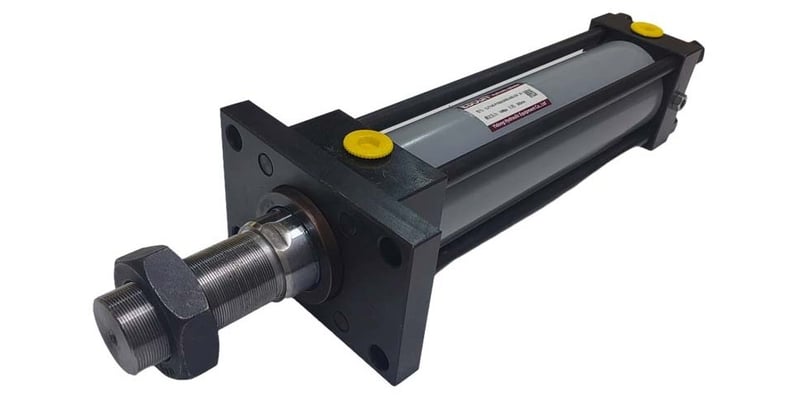Yuken CJT140 Forklift Hydraulic Cylinder Material Selection: Performance of Different Materials and Application Scenarios
1/26/20252 min read


Introduction to Yuken CJT140 Forklift Hydraulic Cylinders
The Yuken CJT140 forklift is renowned for its efficiency and reliability in various industrial applications. One of the critical components that contribute to its performance is the hydraulic cylinder. The material selection for hydraulic cylinders plays a pivotal role in their operation, durability, and overall functionality. In this blog post, we will explore the different materials commonly used in hydraulic cylinders, their performance characteristics, and the application scenarios best suited for each material.
Common Materials Used in Hydraulic Cylinder Production
Hydraulic cylinders can be made from several types of materials, each with its own advantages and disadvantages. The most commonly used materials include:
Steel: A prevalent choice due to its strength and longevity, steel provides excellent performance in high-pressure applications. It can withstand shock loads and is resistant to deformation.
Aluminum: Much lighter than steel, aluminum is used for applications where weight is a significant factor. It's also more resistant to corrosion, making it suitable for environments that expose hydraulic cylinders to chemicals.
Composite Materials: In recent years, composite materials have gained traction in hydraulic cylinder manufacturing. These materials can offer a balance of strength and weight, which is beneficial for specific applications.
Each material's choice must consider the operational environment, load requirements, and maintenance capabilities.
Performance of Different Hydraulic Cylinder Materials
Different materials serve various functions within the hydraulic system of the Yuken CJT140 forklift. For instance, steel cylinders provide exceptional strength, making them ideal for heavy-duty applications where high pressures are anticipated. Conversely, aluminum cylinders might be preferred in lighter applications, such as maneuvering in tight spaces where weight reduction significantly influences performance.
Moreover, the corrosion resistance of aluminum allows it to perform well in harsher environments, while the compressive strength of steel ensures enduring performance, particularly in sectors like construction and logistics where power and resilience are essential.
Application Scenarios for Various Hydraulic Cylinder Materials
Understanding the application scenarios can help in making informed decisions regarding material selection for hydraulic cylinders on the Yuken CJT140 forklift:
Heavy Industrial Use: Steel is the material of choice where heavy loads and harsh operating conditions exist.
Logistics and Warehousing: Aluminum cylinders are often used in scenarios where weight limits are critical, allowing for lighter forklift designs without sacrificing strength.
Chemical Processing: Composite materials or aluminum are preferable when dealing with corrosive substances, as they inherently resist degradation.
In conclusion, the selection of hydraulic cylinder materials for the Yuken CJT140 forklift can significantly affect its performance across different application scenarios. By understanding the unique properties and applications of each material, operators can ensure optimal performance and longevity of their hydraulic systems.
rexroth hydraulic cylinder CGH Series of CGH1 CGH2 CGH3 CGM1 CDH1 MP5 220/140/835 AIX/M4CADMWW CD250 rexroth cylinder CD/CG350 rexroth hydraulic cylinder brake cylinder for caterpillar komatsu cylinder hydraulic cylinder for tipper trailer industrial hydraulic cylinder rx 135 cylinder kit polyurethane cylinder dump truck hydraulic cylinder double acting hydraulic cylinder cg cylinder head hydraulic cylinder seal kit cylinder repair tools long hydraulic cylinder rexroth yuken hydraulic cylinder seal kit for hydraulic cylinder double acting
